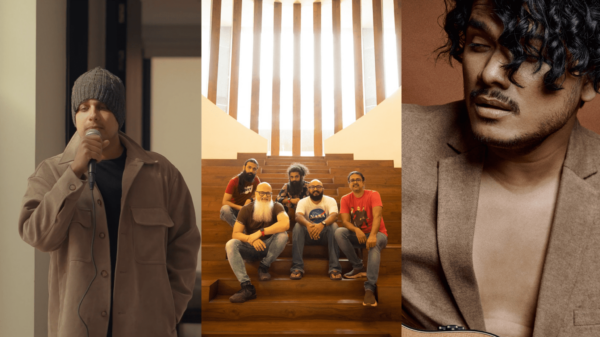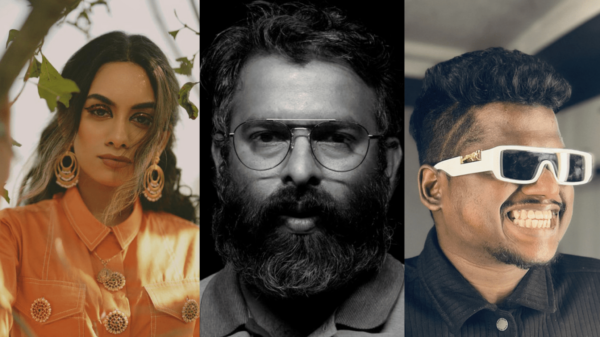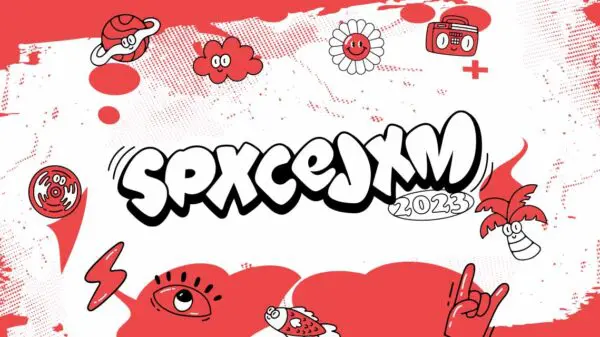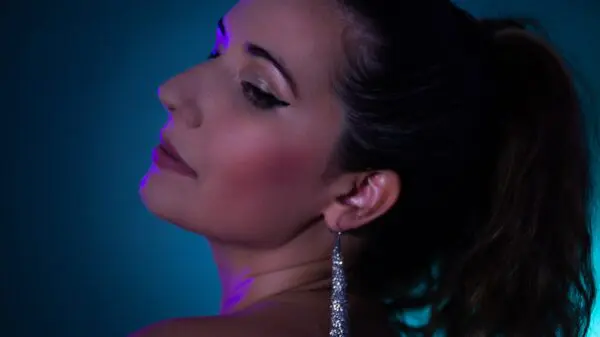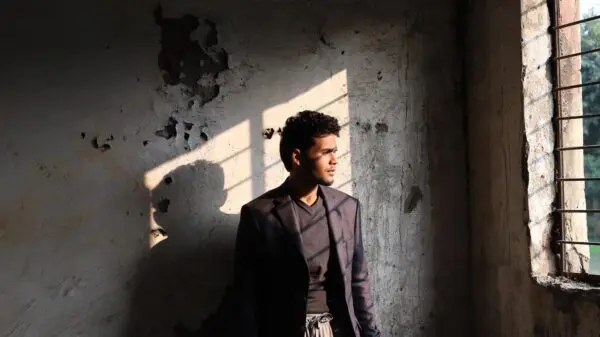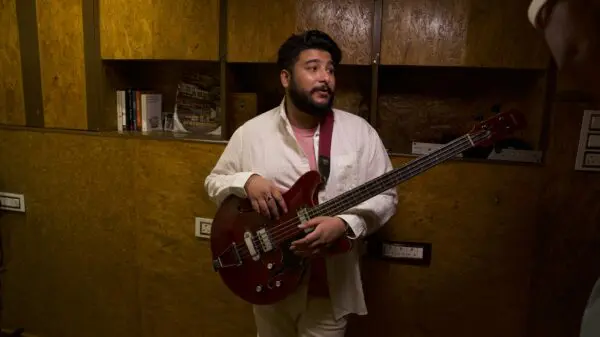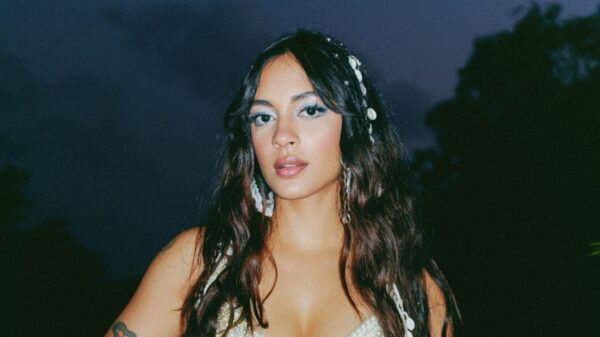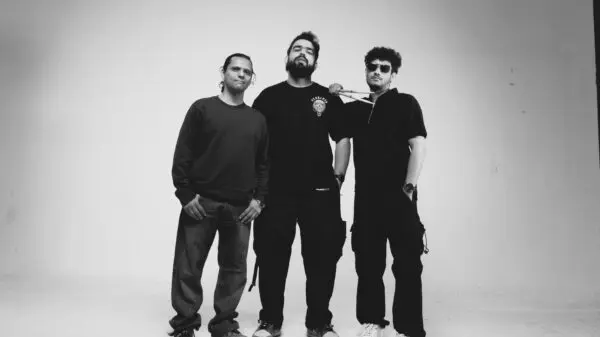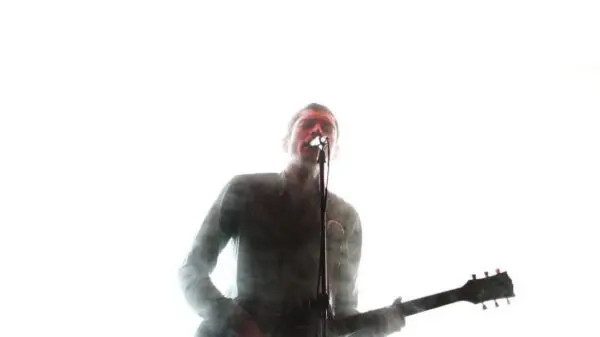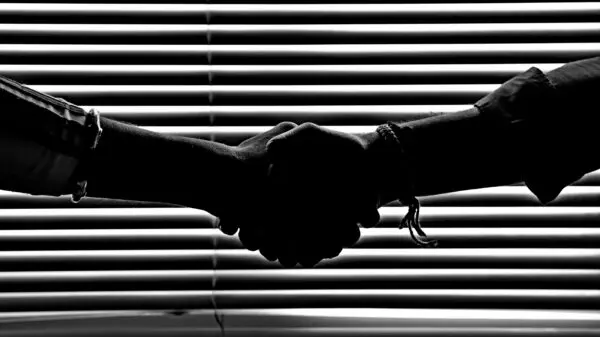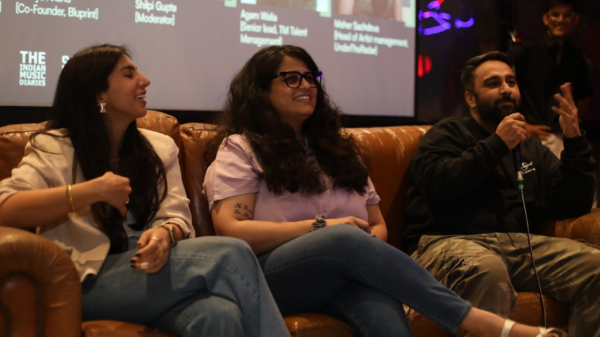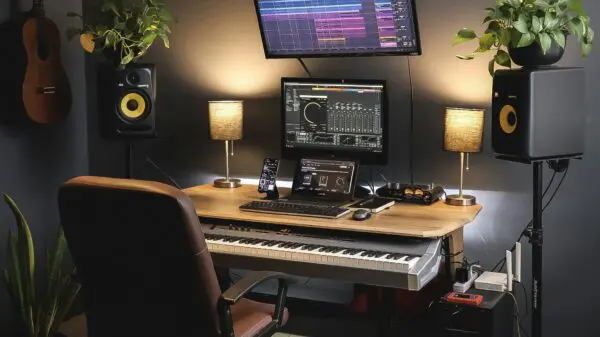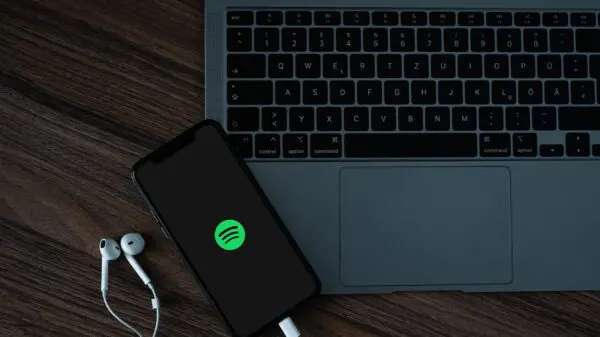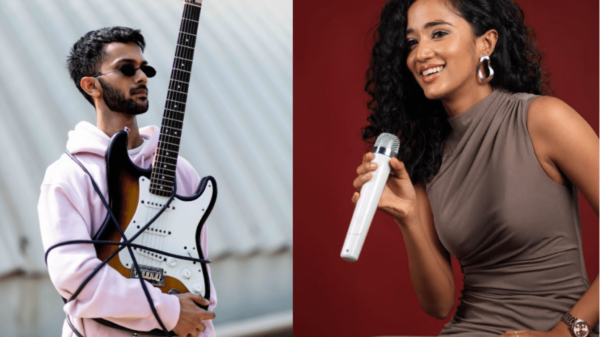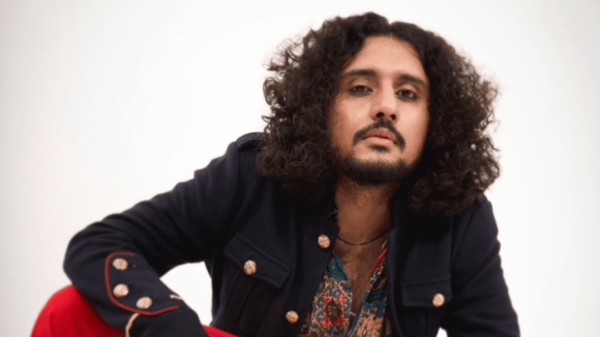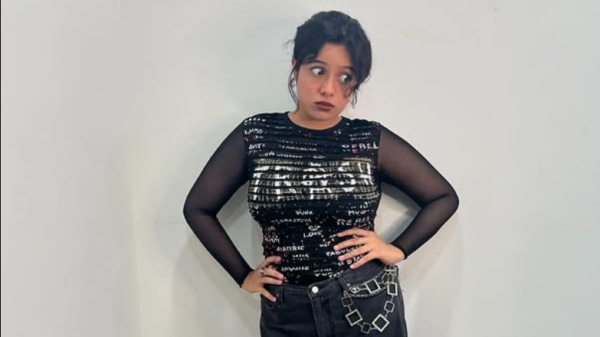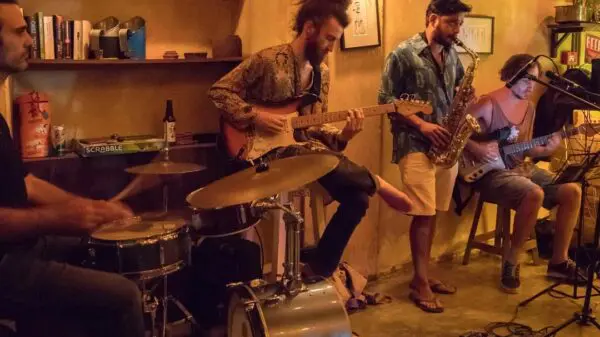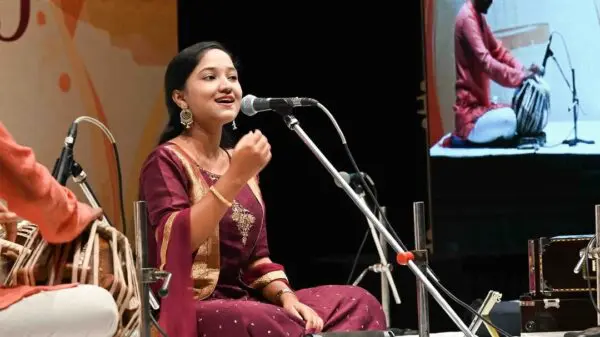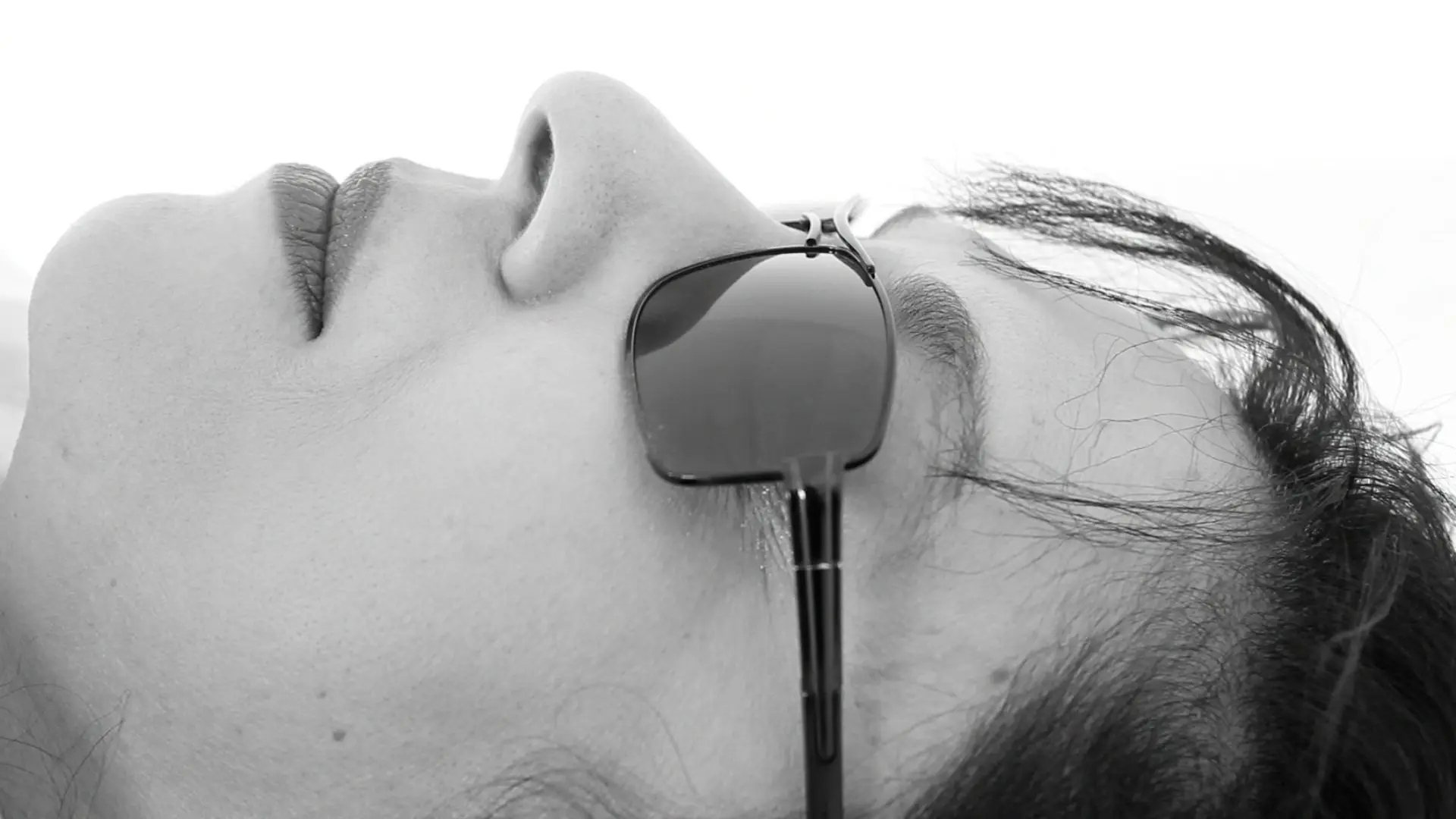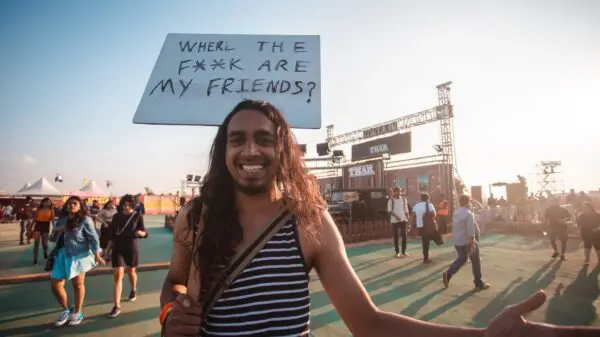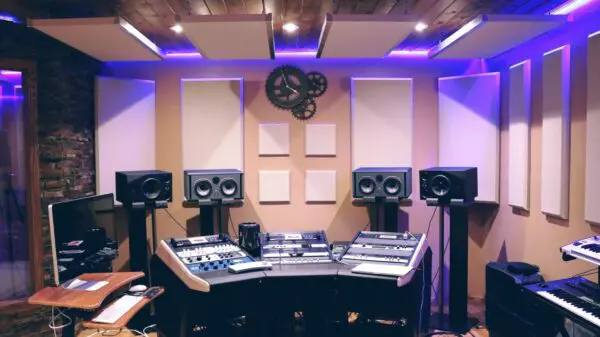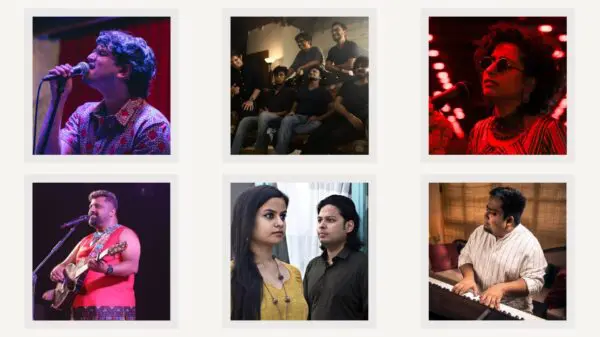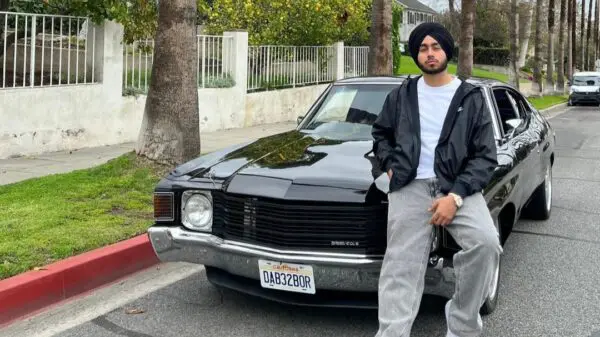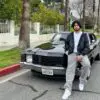A jazz vocalist and a published author, Radha Thomas is a dynamic personality whose music lies in the world of jazz. She began headlining as a singer while still in her teens in a rock and roll band called Human Bondage, which was India’s most popular band in the 70s. She soon developed a strong taste for jazz, which is her favourite kind of music. She also began combining the tonal complexities of jazz with the rhythmic nuances of Indian classical music. Hailing from Tamil Nadu, she is also empaneled as the jazz ambassador for India by the Indian Council For Cultural Affairs. In a conversation with us, the artist talks about her story as well as her latest album ‘As I Sing.’
1. Tell us a bit about your project. How did you begin your journey as a singer-songwriter?
I have had two distinct careers. First and foremost, as a jazz musician, composer, arranger and band leader; then as a published author of 4 titles. I was born in Tamil Nadu in India, grew up in Mumbai and Delhi and then left for the USA to pursue my dream of becoming a jazz singer. Although jazz was (and continues to be) my driving passion, it never provided me a lucrative career, one that allowed me to focus on music alone.
I spent 20 years in New York, holding a variety of day-jobs in the travel and publishing industries, while singing in clubs at night, performing and recording in the city. Then I returned to India and formed the band UNK: the Radha Thomas Ensemble. The band travelled India extensively and performed as much as the genre permitted.
2. Which bands/artists were your first love and who is your biggest influence?
When I started out musically, at around 17, it was important to listen to everyone and everything. Rock and roll was big at the time. I listened to everyone from Charlie Parker to Ella Fitzgerald to John McLaughlin to Lambert, Hendricks & Ros, The Rolling Stones and the Beatles and The Who. But as the years went by and I started developing my own sound, the listening was more to my inner voice and the sounds that came to me.
3. Tell us a bit about your upcoming album ‘As I Sing.’
In a way, making an album like this is crazy when you’re so far away from NYC. the heartbeat of jazz. But I guess both the city and the music are part of my soul now, so there was nothing to do but sing.
I’ve loved all the tunes I’m singing on this album for a long time and each one means something special. I’ve tried to bring a little ‘me’ into each song, writing vocalese lyrics, changing up the melody… that sort of thing.
The idea of using multiple guitar players came from SusheelKurien, a filmmaker who made the critically acclaimed documentary, Finding Carlton. It traces the story of a jazz guitar player in India in the 60s and 70s. It was a great idea and gave me the opportunity to collaborate with Reg Schwager from Canada. My friend, the great British jazz singer Clare Foster, introduced me to him online. She and I both shared a history of music with the late guitar player Ryo Kawasaki.

Besides jazz my other passion is rescuing dogs and India has too many of them to count. My soulmate from Switzerland, Beat Kaestli who is a jazz-singing-dog-training person, introduced me to Pete McCann, Paul Meyers and Tom Dempsey. Something about singers and jazz guitar players. Meant to be together.
Oh lastly, I haven’t met anyone in the cast of characters on this album. I do hope I can one of these days.
4. What is your music-making and recording process like?
We recorded the album over some 4 months through a bout of Covid (me) and other sundry obstacles. All virtual, and all thanks to IrealPro, an app that lets singers change key and tempo at will. Basically, the app gives you a rehearsal band and you can record your music using that. The guitar player would then remove the backing band track and play his own music. I would then sing over that again.
Very useful tool for sending files back and forth, so that you never have to speak to each other, except through the music. There is something ultimately pure about that.
I recorded myself in my home studio in Bangalore, India, mostly at night. Covid forced me to learn how to use recording technology, and this is mighty cool.
Yura Romaniv did the mixing and mastering in Lviv, Ukraine, under the worst possible circumstances. Rockets flying, bombs blasting and people getting annihilated. But he says the music keeps him sane. Since his country is at war, it has been difficult to seize moments of quiet and calm to finish the work involved. But working in bits and pieces, from ‘safe’ places, he completed the job. Very often he would wake up bleary eyed, not because of a night of partying, but because of the bomb alert alarms and sirens that kept him awake.
5. Why do you make music? What drives you as a musician and what are your songs about?
I can’t imagine my life without music. I am always writing a new song or learning a new song. It’s alway been like this and I doubt it will stop.
6. Which Indian bands or artists do you admire? And why?
I’ve answered that above. But in terms of new music, I recently was introduced to the music of a wonderful singer and composer named Aditi Ramesh. I like her a lot. And I love Aman Mahajan who fortunately for me, has played a lot of my songs. There are a few serious jazz musicians from India who are all going places. It’s wonderful to see that. One of them is SachalVasandhani. Of course, there’s Rudresh Mahantappa and Vijay Iyer.
7. What’s your take on the independent music scene in India?
It’s thriving online I can see. And as long as there’s even a hint of Indian music in it… it’s bound to do well at live shows too. This is India after all and people like Indian food and Indian music and Indian movies. But if you are playing a totally different form of music, like jazz… with no hint of the raga…then I think it’s a bit like baying at the moon. I’m kidding. There is a niche audience for jazz and I’m grateful for that.

